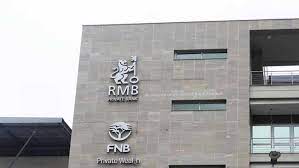-
Egypt, Morocco, S/Africa, Rwanda, snap up places
-
Key factors – operating environments, fiscal scores, development plans
Nigeria, Africa’s biggest economy by gross domestic products (GDP) size has been left out by investment assessors’ ratings while compiling Rand Merchant Bank’s (RMB) Africa’s top 10 countries to invest in 2021.
 Operating environment, ease-of-doing business, among other factors, appear to have combined to kick Africa’s top oil country out of the ranking. With mounting insecurity, poor business-friendly environment and unsteady headline inflation, crippling energy supply, Nigeria was not preferred by potential investors.
Operating environment, ease-of-doing business, among other factors, appear to have combined to kick Africa’s top oil country out of the ranking. With mounting insecurity, poor business-friendly environment and unsteady headline inflation, crippling energy supply, Nigeria was not preferred by potential investors.
South African RMB released its list of top 10 investment attractive countries in Africa, aimed at investors targeting real assets in an economy or looking to expand businesses that rely on physical infrastructure.
Historically, investment destinations in Africa have been ranked based on the tenets of economic activity and business operating environment. However, this year’s approach required an extra layer of sophistication, taking into account key factors such as the operating environments, fiscal scores and development plans, all of which are key to investment attractiveness in a Covid-19 world.
Daniel Kavishe, RMB economist and author, said, “We created a new set of rankings that incorporated some of the unavoidable COVID-19-induced challenges, of which the operating environment score was one.”
She added that a fiscal score was also part of the methodology, and this was essential because fiscal scores are important indicators of how governments respond to COVID-19.
“Although the pandemic brought much devastation, it also enabled opportunities for reimagining policies and trade relationships. Increasingly clear now is that home-grown strategies to tackle poverty, inequality and unemployment across Africa must be implemented. If not, all of Africa suffers,” Kavishe noted, adding that capital will flow naturally to economies offering a good mix of opportunity and ease of doing business.
According to RMB, the top 10 investment attractive countries in Africa in 2021 are: Egypt, Morocco, South Africa, Rwanda, Botswana, Ghana, Mauritius, Côte d’Ivoire, Kenya and Tanzania.
Although Egypt’s economy was hard hit by the pandemic, it was also one of the first to bounce back to a path of growth. This, owing to the swift measures it introduced and the fact that it was on a stronger footing at the outbreak of COVID-19.
A new economic outlook report by the African Development Bank (AfDB) in November last year, said Egypt managed to achieve positive growth (+3.6%), one of the few countries in the world to do so in 2020.
The economy of Morocco continues to benefit from political stability. A special fund to combat COVID-19 was established in 2020, representing 2.7% of GDP. Two-thirds of the funds were to be provided by private sources and one third by the government.
South Africa, the southernmost country in Africa, offers a strong manufacturing and retail base that will continue to support southern African regional economies with goods and services.
For Rwanda, the fast-rising East African country continues to benefit from the efforts it has made to improve its operating environment. Furthermore, as part of its national strategy for transformation (NST), various investments should support the construction and energy sectors over the next few years.
Botswana, the land-locked southern African country has high foreign exchange reserves, which have enabled it to weather the pandemic-induced economic storm better than most. Its Pula Fund, a sovereign fund created in 1994 that finances a large part of the budget deficit, has meant that fiscal dependency on debt has been low.
Ghana, a West African oil producer, entered the current crisis on a relatively stronger footing than its African peers. Structurally, its economy has seen major shifts over the past few years, positioning it for significant growth going forward. This is supported by primary-sector industries like oil and gold and accelerated development in the tertiary sector.
Mauritius is aided by an extremely favourable tax regime; its financial sector will remain one of the main drivers of Mauritius’ economy into the future – notably through cross-border investment activities and banking services.
Côte d’Ivoire’s (CIV) rise in private investment should continue to fuel construction, agri-industry and services (trade, transport and ICT in particular). Private investment will benefit from the impetus provided by public investment under the 2016-20 National Development Plan.
According to RMB, the Kenyan government’s efforts to ensure that implementation of the “Big Four” plan focused on industrialisation, universal health coverage, food security and affordable housing will invariably lead to fast economic growth.
Tanzania, an East African economic giant has been on a rapid path of development over the past few years. This growth can be attributed to consistent public investment from the government in key secondary and tertiary sectors, ranging from the energy sector to advancements in the telecommunications and finance sectors.









